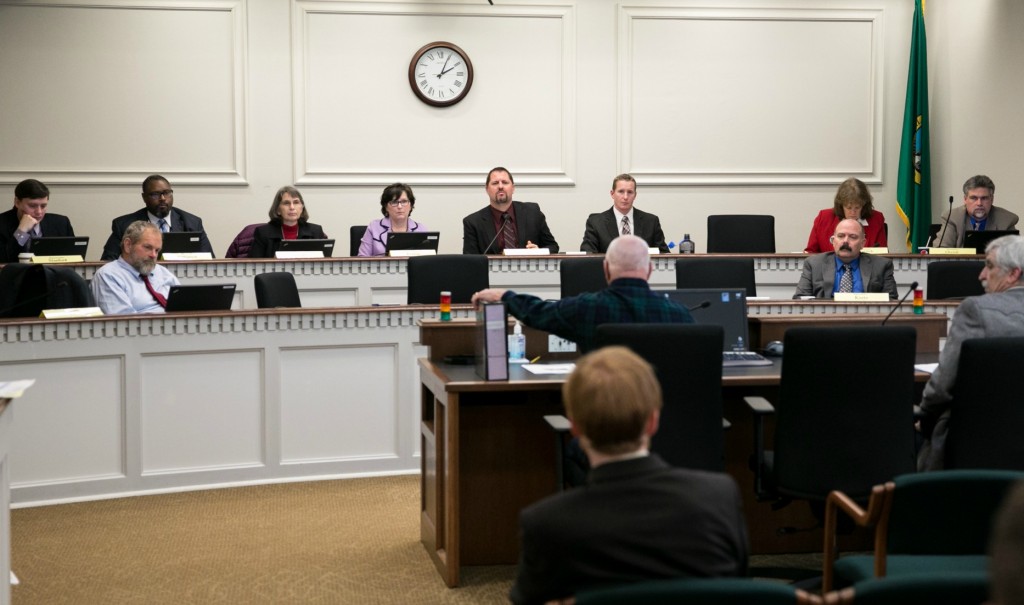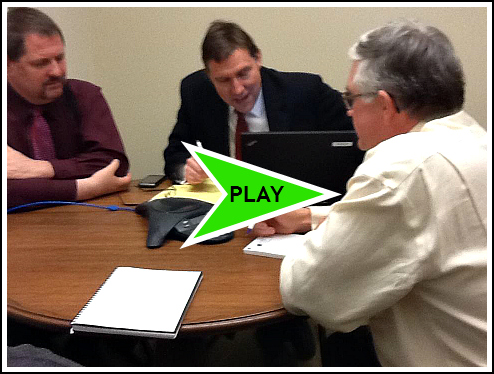ASK ME!
| I’m doing something a bit different this session, and I’m very interested in knowing what you think. I’m starting a video series called “Ask Brian” in which I respond to your emails. The videos are short (2 minutes max.), so I’m taking one or two email messages at a time. Let me know if this is a good idea by clicking on the image to watch the first one. |
Emergency Food Assistance Program
According to the Washington State Department of Agriculture, 1 in 5 Washingtonians currently rely on their local food bank, 54% of which are children or seniors. Demand for services at food banks rose dramatically after the start of the recession in 2008 but the need continues despite the sluggish economic recovery: food banks not only serve more clients than they did before the recession but clients in our lines need to return to food banks more often each month because their incomes still fall woefully short of meeting their household food needs.
| That’s why I am requesting an added $1 million in Emergency Food Assistance Program funds to help provide some relief to food banks as they face the tide that is coming down due to cuts to Basic Food. This money could leverage as many as 3 million additional meals statewide. This is also an investment in local community giving, as the programs that receive EFAP funds must provide a match in privately donated in-kind and monetary contributions.With the cuts to Basic Food/SNAP that took place Nov. 1, it is crucial to move forward with a supplemental budget request to increase EFAP funding during this legislative session and I’m not alone. 32 House members have signed in support of this request and together we are standing against hunger this legislative session. |
Protecting our kids from harmful toxins
Earlier this week, the House approved the Toxic-Free Kids and Families Act with strong bipartisan support. The bill bans six different toxic chemicals – known carcinogens that are probably present in the couch you sit on or the car seat you strap your child into.
These chemicals end up in our household products for fire safety, but sound research casts serious doubt on the effectiveness of these toxics in slowing the spread of the fire. In fact, these chemicals actually make household fires more lethal by increasing the toxicity in the smoke inhaled by firefighters, first responders and victims.
Tris, the toxic flame retardant of choice, is not only a known carcinogen – it is also proven to alter hormones and hinder brain development in children. You can find Tris in car seats and strollers, as well as changing pads and nursing pillows.
What makes this bill effective is that it prohibits an equally toxic – or more toxic – chemical from being substituted for the banned ones. No parent should ever have to choose between their child’s health and their safety – especially when we know that there are non-toxic ways to meet our fire standards.
The bill now moves to the Senate, where it was killed last year.
If you are interested in learning more about the Toxic-Free Kids and Family Act, check out this interview with Rep. Kevin Van De Wege, a firefighter from Sequim, and Senator Sharon Nelson:
Quality counts with early learning
 Washington state has been a leader in creating and expanding early learning programs for our children. We’ve done a great job getting 3- and 4- year-olds ready for kindergarten, especially those from low-income families. But more and more studies are showing that the early years of a child’s life – zero to 18 months – are critical to brain development. The learning process for a child begins immediately after she is born.The evidence also shows that only high quality early learning programs will lead to the results we all want like higher academic achievement, improved graduation rates, and lower incarceration rates. Washington state has been a leader in creating and expanding early learning programs for our children. We’ve done a great job getting 3- and 4- year-olds ready for kindergarten, especially those from low-income families. But more and more studies are showing that the early years of a child’s life – zero to 18 months – are critical to brain development. The learning process for a child begins immediately after she is born.The evidence also shows that only high quality early learning programs will lead to the results we all want like higher academic achievement, improved graduation rates, and lower incarceration rates.
The Early Start Act of 2014 will reform our early learning system by creating a mix of incentives and requirements for early learning providers to improve the quality of child care they deliver. We have over 174,000 kids in childcare programs in Washington state and we need to ensure they’re getting the best care possible. Closing the opportunity gap, increasing graduation rates, and breaking the cycle of poverty will be impossible without an improvement in the quality of our early learning programs. Early learning is a great investment, too! For every dollar spent on high quality early learning programs, taxpayers save up to $8 in future costs like prisons and food assistance programs. |
What’s going on in the House Agriculture & Natural Resources committee?

My committee has heard from many Washington State citizens so far this session. Tomorrow, at 1:30 PM, we will hold public hearings on another one of my prime-sponsored bills:
HB 2584 – Allowing prepayment of the penalty for removal of land from the farm and agricultural land current use property tax classification.
To access the documents and presentations from all the legislative committee work sessions online, feel free to check the Electronic Bill Book.
If you want to know what bills passed through committee or are interested in following what’s going on in the House Agriculture and Natural Resources Committee you can sign up here to receive E-mail notifications. You can also check out our committee agenda to see what’s coming up next week.



